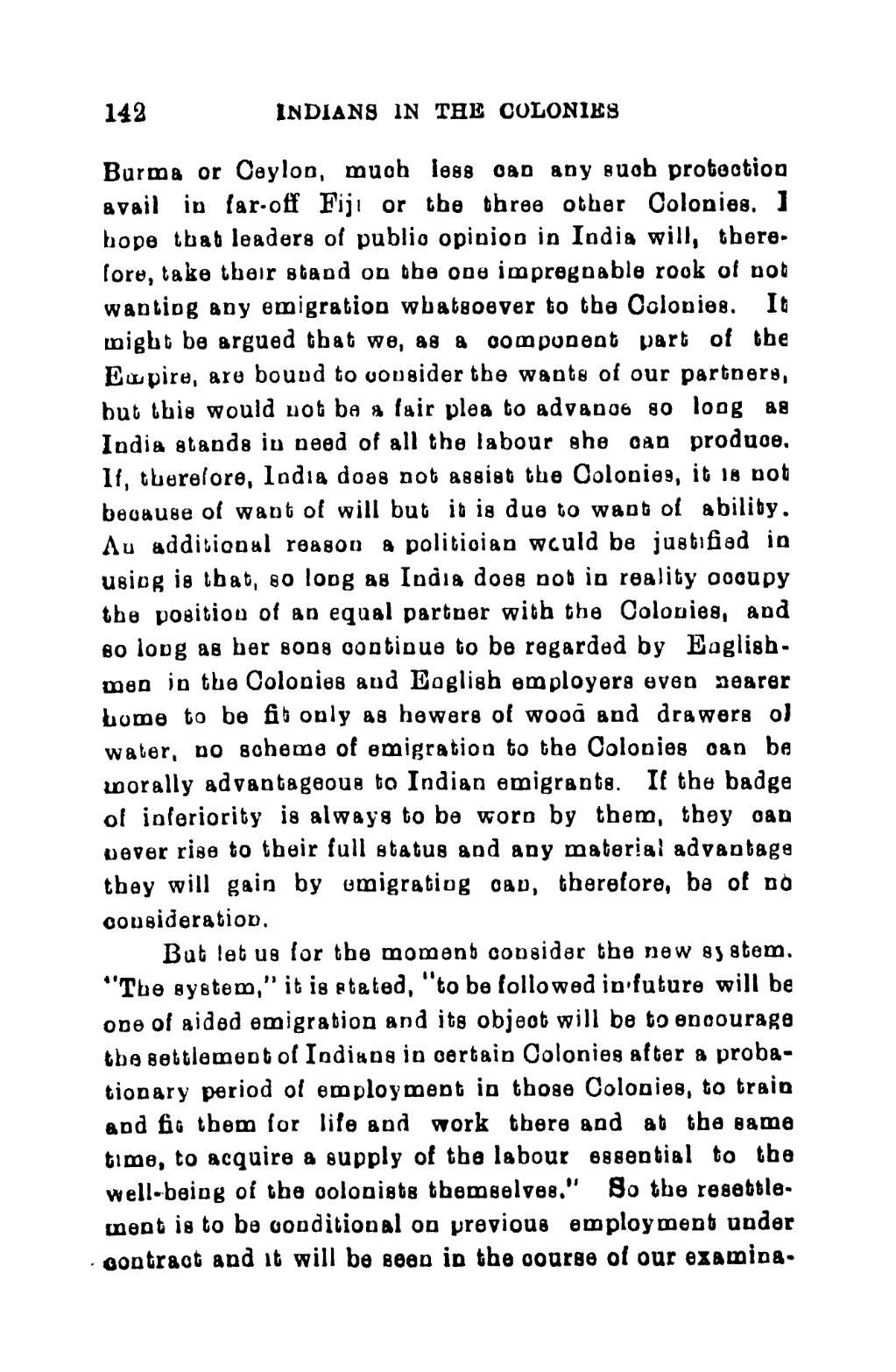Burma or Ceylon, much less can any such protection avail in far-off Fiji or the three other Colonies, I hope that leaders of public opinion in India will, therefore, take their stand on the one impregnable rock of not wanting any emigration whatsoever to the Colonies. It might be argued that we, as a component part of the Empire, are bound to consider the wants of our partners, but this would not be a fair plea to advance so long as India stands in need of all the labour she can produce. If, therefore, India does not assist the Colonies, it is not because of want of will but it is due to want of ability. An additional reason a politician would be justified in using is that, so long as India does not in reality occupy the position of an equal partner with the Colonies, and so long as her sons continue to be regarded by Englishmen in the Colonies and English employers even nearer home to be fit only as hewers of wood and drawers of water, no scheme of emigration to the Colonies can be morally advantageous to Indian emigrants. If the badge of inferiority is always to be worn by them, they can never rise to their full status and any material advantage they will gain by emigrating can, therefore, be of no consideration.
But let us for the moment consider the new system. "The system," it is stated, "to be followed in future will be one of aided emigration and its object will be to encourage the settlement of Indians in certain Colonies after a probationary period of employment in those Colonies, to train and fit them for life and work there and at the same time, to acquire a supply of the labour essential to the well-being of the colonists themselves." So the resettlement is to be conditional on previous employment under contract and it will be seen in the course of our examina-
